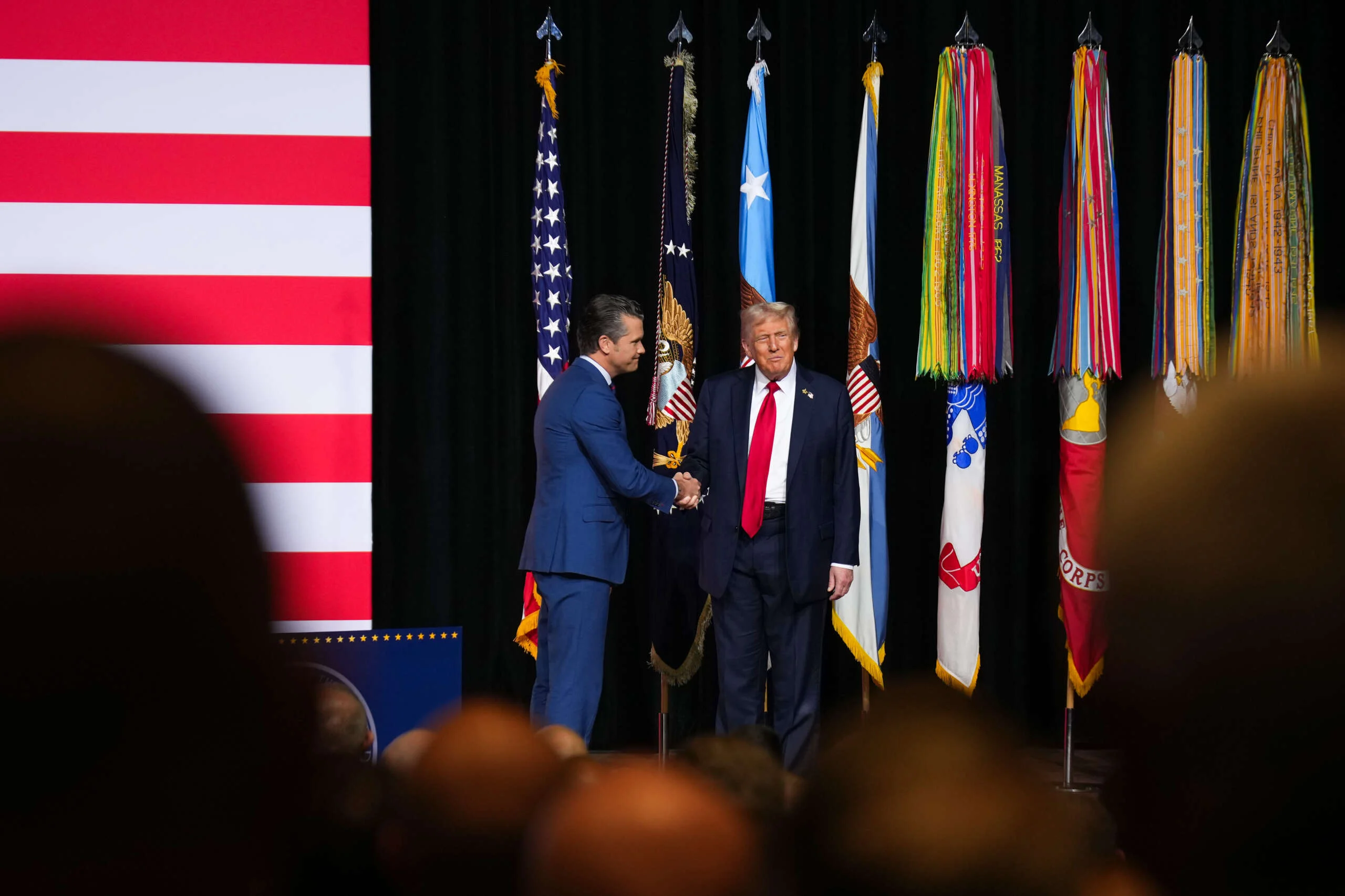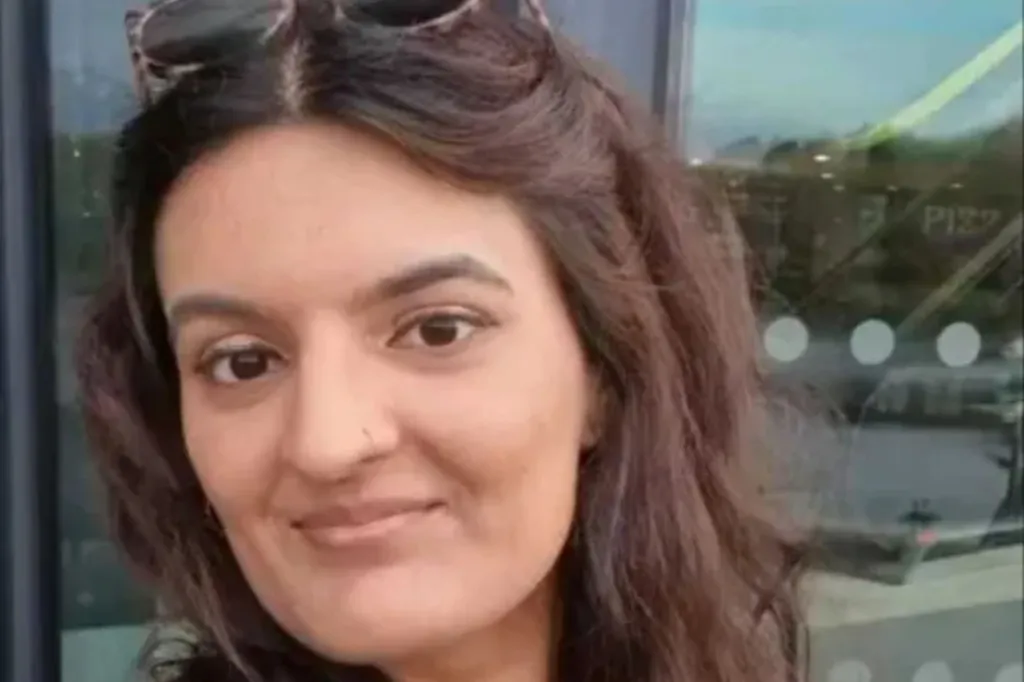By Johnnie Jae
Copyright truthout

On September 25, 2025, Defense Secretary Pete Hegseth made an announcement that reopened one of the deepest wounds in Native American history: “We’re making it clear that (the soldiers) deserve those medals. … Their place in our nation’s history is no longer up for debate.”
He was referring to the 20 Medals of Honor awarded to members of the U.S. 7th Cavalry for their role in the Wounded Knee Massacre.
Hegseth’s words are not merely a statement of policy, but reflective of the Trump administration’s lack of historical understanding and its ongoing antagonistic disregard for the nation-to-nation relationship of the U.S. government and Native nations. To insist that the soldiers of the 7th Cavalry “deserve those medals” is to frame the massacre at Wounded Knee as a moment of valor rather than atrocity. For Native communities, this declaration is not about honor, but erasure and cruelty that reopen and deepen a wound that has never healed.
It is also reflective of the Trump administration’s wider treatment of Native nations. From pushing pipelines through Native lands without tribal consent to stripping protections from Bears Ears and Oak Flat, the administration consistently treats sovereignty and treaty rights as barriers to be removed. The Trump administration also rejected the Truth and Healing Commission on Indian Boarding School Policies Act, denying justice for Indian boarding school survivors. Funding for Native housing, health care, and education also faces constant threats, further undermining already under-resourced communities.
It is in this broader context that Hegseth’s words did more than defend the Medals of Honor tied to Wounded Knee; they reaffirmed an administration-wide posture that chooses conquest over justice and erasure over truth, one that treats Native peoples not as sovereign nations but as obstacles to a narrative of American greatness built on violence.
The Wounded Knee Massacre
On December 29, 1890, soldiers from the U.S. 7th Cavalry Regiment killed nearly 300 unarmed Lakota men, women, and children near Wounded Knee Creek on the Pine Ridge Reservation in South Dakota. The massacre followed weeks of rising tension sparked by the Ghost Dance, a spiritual movement promising hope and renewal for Native peoples, and decades of broken treaties, land theft, and violence against Indigenous communities.
Fearing for their safety after the murder of Chief Sitting Bull, Chief Spotted Elk and his band of mostly elders, women, and children sought refuge and protection with Chief Red Cloud at Pine Ridge. On December 28, 1890, soldiers of the 7th Cavalry intercepted Spotted Elk’s group and escorted them to a camp near Wounded Knee Creek. The following morning, Colonel James Forsyth ordered the Lakota to surrender their weapons. As soldiers searched the camp for hidden arms, a struggle erupted over a rifle held by a deaf Lakota man, Black Coyote, who had not understood the order to give it up. That single shot set off a wave of violence.
Soldiers immediately opened fire on the largely disarmed Lakota. Men, women, and children were killed indiscriminately. Some Lakota who managed to grab weapons fought back briefly but were overwhelmed. Women and children fleeing for safety were pursued by the soldiers and shot down on horseback. When the violence finally ended, nearly 300 Lakota had been killed, and at least 25 U.S. soldiers also lost their lives. The bodies of the Lakota were left to freeze in a blizzard for three days before being buried in a mass grave, a haunting testament to the atrocity that had occurred.
Despite the clear horror, on June 27, 1891, 20 soldiers were awarded the Medal of Honor for their actions. For Native peoples, these medals are not a recognition of bravery, but a celebration of atrocity. They turn the massacre of women, children, and elders into a story of valor, erasing the suffering of our relatives and sending a message that their deaths were justified or even commendable.
The Wounded Knee Occupation of 1973
The Wounded Knee Massacre cast a long shadow over Pine Ridge and the Lakota people. More than 80 years later, on February 27, 1973, over 200 Lakota and members of the American Indian Movement, angered by corruption within the tribal government and decades of broken treaties, seized and occupied the town of Wounded Knee. They demanded justice, accountability, and recognition of the ongoing oppression faced by Native peoples. For 71 days, they held their ground while facing U.S. marshals and FBI agents. The Occupation of Wounded Knee, also known as Second Wounded Knee, brought national and international attention to the struggles and systemic inequities Native communities continued to endure, while also bringing past injustices into the light.
The Wounded Knee Occupation of 1973 was a direct connection to the massacre in 1890. It was a statement that the injustices of the past bleed into and fuel the injustices of the present. Wounded Knee became a symbol of resistance, a place where the past and present collided. For the Lakota and other Native peoples, the occupation was a declaration that memory matters, that truth matters, and that the fight for accountability and healing would not end but continue with each generation.
The Medal of Honor and the Remove the Stain Act
The Medal of Honor is meant to recognize extraordinary bravery, selflessness, and heroism in defense of life. By attaching that medal to the Massacre at Wounded Knee, the U.S. government defines massacre as valor. Generations of Lakota descendants have carried the grief and anger that come with this injustice. They have petitioned, marched, and spoken out for decades, insisting that these medals be rescinded. Their argument is simple: There is no honor in the brutal murder of unarmed civilians, of women, children, and the elderly.
Few voices capture this demand better than Marcella LeBeau, a Cheyenne River Sioux Tribal elder and U.S. Army veteran. During World War II, LeBeau served as a nurse at the Battle of the Bulge, where she treated wounded soldiers under relentless bombing. She witnessed unspeakable suffering and displayed extraordinary courage. For her service, the French government awarded her the Légion d’Honneur.
LeBeau stood firmly behind the Remove the Stain Act, legislation that sought to rescind the Medals of Honor awarded to soldiers for their part in the Wounded Knee Massacre. In 2019, she spoke at a ceremony introducing the bill at the U.S. Capitol alongside then-Rep. Deb Haaland (D-New Mexico). In 2020, at 100 years old, she testified before Congress, saying, “A pervasive sadness exists among our Lakota due to the tragic loss of our Relatives at Wounded Knee. To promote healing, America must remove all Medals of Honor awarded for the Wounded Knee Massacre.” But her words were ignored, and the act did not pass. However, several versions have been introduced before Congress. In May, the Remove the Stain Act of 2025 was reintroduced by Senators Elizabeth Warren (D-Massachusetts) and Jeff Merkley (D-Oregon), and Rep. Jill Tokuda (D-Hawaii).
LeBeau lived a life of courage and service. Her call to remove the Medals of Honor was rooted in the same values the Medal of Honor is meant to represent: bravery, service, and the protection of life.
By refusing to rescind the medals, the Trump administration sends a message that the lives of Native people do not matter. It tells us that the killing of our ancestors is cause for celebration, but more dangerously, it sends the message that there is valor in genocide.
Atrocity Is Not Valor
Rescinding these medals will not erase the massacre. It will not bring back the dead. But it would affirm that the U.S. can recognize the difference between right and wrong, between valor and injustice. It would acknowledge that the murder of unarmed civilians — regardless of race, ethnicity, creed, sexuality, or religion — is not valor. It would allow this country to take a small step toward truth and healing.
The correlation between December 29, 1890, and 1973 reminds us that injustice and resistance are intertwined. The massacre and the occupation are chapters in the same story. Both demand recognition. Both demand action
History is not beyond debate. Morality is never beyond question. However, Hegseth’s words make it clear that the Trump administration is choosing conquest over justice and erasure over memory. More terrifying for us all, Hegseth’s words also reaffirm what President Donald Trump said in an interview on “Fox & Friends” following the murder of Charlie Kirk. When asked how Americans could come together to “fix America,” Trump responded, “I’ll tell you something that’s going to get me in trouble, but I couldn’t care less.”
If this is the vision of the United States that Trump and his administration want to preserve, then we cannot remain silent. Wounded Knee is not just a story about the past. It is a mirror that reflects how this nation continues to treat Native peoples and how easily it excuses violence when it is convenient to its own myths.
Trump’s contempt for Native people has never been limited to policy. It ranges from the 1990s, when he told Congress that tribal casinos had ties to organized crime and that tribal members “didn’t look like Indians” to him, to his time in office, during which he has repeatedly used “Pocahontas” in a derogatory manner, even during a ceremony to honor the Navajo Code Talkers. More recently, his administration questioned the citizenship of Native people and dismissed the movement to end racist mascots in sports, calling for the Washington Commanders to revert to the Washington R*dskins name, while doubling down on rhetoric that dehumanizes us. His words have always carried the same violence as his actions, and his hostility is both longstanding and deliberate.
Keeping the Medals of Honor in place is not about pride or patriotism. It is about power and the refusal to confront the truth of genocide. The call to rescind those medals is not about erasing history, but about refusing to let lies and conquest define it. The U.S. cannot heal if it continues to honor atrocity. We remember. We resist. And we will continue to demand truth and justice, no matter how many times they try to bury and deny it.



